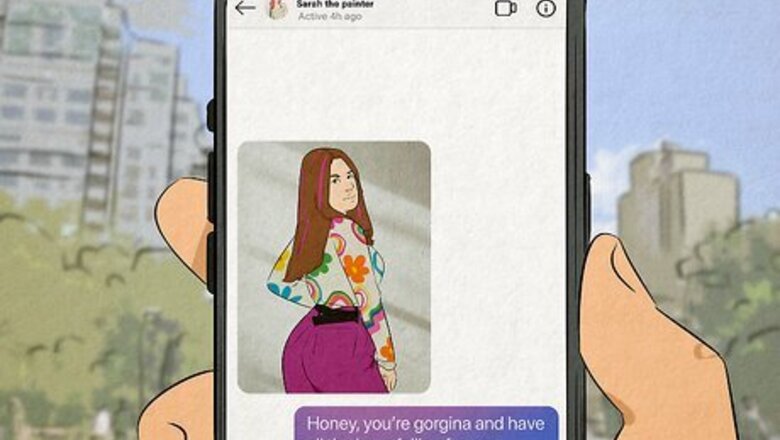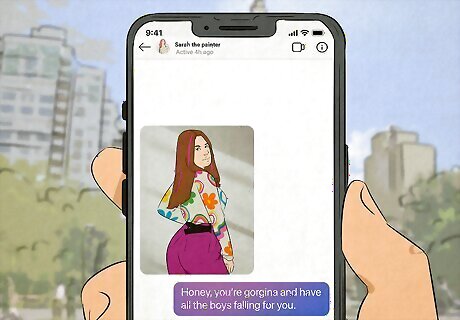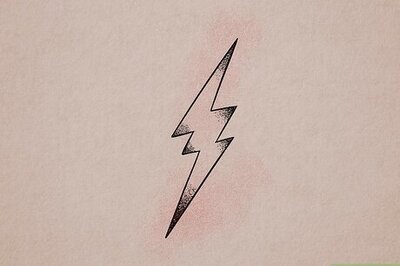
views
What does “gorgina” mean?

“Gorgina” is slang for “gorgeous.” Rutkowski says, “Gorgina is a play on ‘gorgeous’! It’s very common online for young users to both humanize and feminize positive, appearance-based adjectives.” The word often playfully replaces or amplifies words like “beautiful,” “glamorous,” or “gorgeous.” So, if someone is “gorgina,” it means they're beyond gorgeous in looks or attitude. “That fit is gorgina!” “Honey, you’re gorgina and have all the boys falling for you.” “This is absolutely gorgina! I need it.” Meet the wikiHow Expert Gia Rutkowski is an influencer and content creator based in Chicago, Illinois. She specializes in spotting rising trends and cultural shifts before they go mainstream, and then breaking them down for her clients and followers.
Gorgina Origins & Uses
“Gorgina” became mainstream after a Khloé Kardashian Facebook post. While the term was popular before, “gorgina” became widely used slang after Khloé Kardashian used it in a Facebook post on June 24, 2013. The post reads “Can you say GORGINA!? ????” with a now-deleted self-portrait and inaccessible link.
“Doritos - For the Bold” Super Bowl fan ad features “gorgina” drag queens. In 2025, Doritos fans entered a commercial contest for a chance to win $1 million. One viral fan-ad featured New York drag queens Vanity Levain and Pink Pancake, who were described as “gorgina.”
Joey Graceffa describes crystals as “gorgina.” Popular content creator and influencer Joey Graceffa has used the “yassified” version of “gorgeous” to describe many things, including stunning crystals, like in this tweet.
"Gorgina" is popular with online queer and POC communities. Rutkowski says, “Compliments like ‘slay’, ‘eat’, ‘serving’, ‘diva’, ‘gorgina’, ‘no crumbs’, etc., are different from the typical ‘beautiful’, ‘gorgeous’, and ‘stunning’ because of their origin/popularization: internet subgroups that are often queer, POC, or generally left leaning.” Rutkowski continues, “Using the compliment ‘gorgina’ is an intentional choice to not use ‘gorgeous’; it’s a verbal signal of what digital group the person may belong to. Lingual hints like this can be used to convey information that may not be immediately apparent visually. For example, a man may use ‘slay’ as a way of signaling queerness or generally being nonthreatening.” “Since these words are linked to queer and marginalized culture, they are also perceived to be used by more feminine-presenting individuals (typically women and gay men). ‘Gorgina’ is the epitome of this, as you’d seldom hear it be used by a right-leaning, straight man,” notes Rutkowski.
What if someone calls you “gorgina”?

If someone calls you “gorgina,” it’s high praise. Get it, girl! Being called “gorgina” is practically the best compliment. The complimenter is saying that your beauty is undefined. You’re simply too iconic to be just gorgeous—you’re out of this world! Rutkowski says, “If someone calls you ‘gorgina’, it should be both accepted as a compliment and perhaps taken as a hint that the other person is part of a specific algorithmic subgroup and identifies with that culture. It’s best to reply with slang that exists within that same culture, such as ‘oh, you ate’ or ‘boots.’ Again, this intentional alteration of the word gorgeous is often wielded as a hint to part of the individual’s identity.” Accept the compliment with an earnest thank you to show your appreciation, or give a simple hair flip to say, “I know, boo.”

















Comments
0 comment